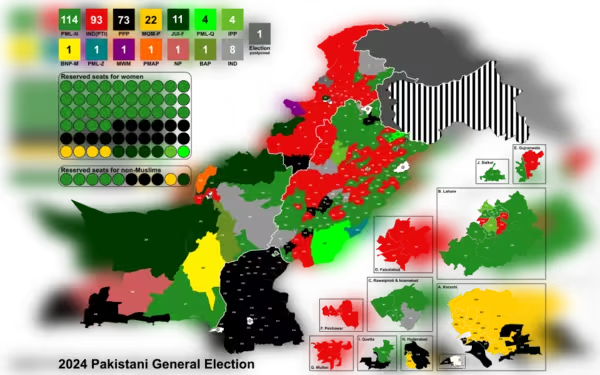Tuesday, July 2, 2024 03:43 PM
ECP's Role Questioned in Balochistan Assembly Election Dispute
- Supreme Court questions Election Commission of Pakistan's decision on re-polling
- Nawab Chenghaiz Khan Marri's victory in PB-9 under scrutiny
- Judiciary emphasizes importance of transparent electoral practices
 Image Credits: Wikipedia
Image Credits: WikipediaThe Supreme Court hearing on the re-polling dispute in PB-9 questions the Election Commission of Pakistan's role in ensuring transparent electoral practices, highlighting the importance of upholding electoral integrity.
The role of the Election Commission of Pakistan (ECP) in the electoral process has been a topic of discussion in a recent hearing at the Supreme Court. The case revolves around the re-polling at four polling stations in the Balochistan Assembly constituency of PB-9, where the victory of Nawab Chenghaiz Khan Marri, a member of the Pakistan Muslim League-Nawaz (PML-N), is being contested.
Justice Ayesha Malik, along with a bench led by Justice Muhammad Ali Mazhar and Justice Irfan Saadat Khan, questioned the necessity of suspending the re-polling order. The ECP had initially ordered re-polling at seven polling stations due to security concerns, which took place on February 16. Despite the re-polling, Marri emerged victorious and assumed office as a Balochistan Assembly member on February 28.
During the hearing, the court sought clarification on whether the ballot papers had been printed, emphasizing the importance of allowing the voting process to proceed once the ballots were prepared. The ECP lawyer informed the court that the polling was scheduled for April 24, indicating that preparations were underway.
The proceedings were adjourned until April 22, allowing for further deliberation on the matter before a decision is reached. The case highlights the complexities involved in ensuring fair and transparent electoral practices, with the judiciary playing a crucial role in upholding the integrity of the electoral process.













